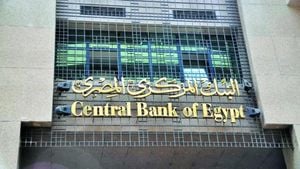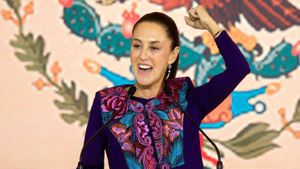Recent developments concerning Ramadan observances have sparked renewed interest and anticipation across Saudi Arabia, particularly with the announcement of forthcoming financial support aimed at aiding citizens during the holy month.
The royal grant, traditionally provided to assist families during Ramadan, is regarded as critically important for many. This financial aid helps families cope with the increased expenses associated with Ramadan, such as preparing iftar meals and contributing to charitable funds.
Reports have surfaced indicating the grant's distribution is expected to occur within the first ten days of Ramadan. This timing mirrors previous years, where the government aimed to provide support to its citizens right at the start of the holy month.
"The royal grant during Ramadan is considered one of the important issues among the public," reflected community leaders who emphasized the anticipatory nature of citizens awaiting these funds. This sentiment resonates widely among families often challenged by financial constraints.
Further addressing the government’s efforts, officials noted, "The program aims to support families during the month of Ramadan, ensuring they have means to prepare for the festivities and to support charitable efforts." Such programs are not only integral as financial aid but also as a reminder of the communal aspects of Ramadan, where the spirit of giving is highly encouraged.
These developments come at a time when many families seek relief from economic pressure, underscoring the need for timely assistance. The significance of the royal grant extends beyond financial help; it serves as a reflective embodiment of unity and compassion during one of the most important months of the Islamic calendar.
Ramadan is not merely viewed through the lens of personal reflection and family observance, but it also presents substantial opportunities for community engagement. Various initiatives are often undertaken during this period, aligning with the broader cultural observances. These include charity events aimed at providing food for those less fortunate and organizing community prayers.
Government programs, like the royal grant, are intended to fortify these community engagements, ensuring families can participate fully without the heavy burden of financial stress. Such moves highlight the governmental commitment to fostering community solidarity, particularly during Ramadan.
The observance of Ramadan has evolved through time, incorporating various dimensions, including cultural, social, and economic factors. The blend of tradition and modern initiatives aims to keep the essence of Ramadan alive for the younger generations, ensuring they understand both the personal and communal importance of the month.
While awaiting the upcoming royal grant, many communities are already mobilizing charitable efforts to help those who may need assistance as Ramadan approaches. This proactive approach not only demonstrates the importance of mutual support but also showcases cultural values instilled within the society.
Looking forward, these developments reflect the continuous evolution of Ramadan observances, promoting not only religious fidelity but also social responsibility among citizens. The royal grant and its related programs symbolize the trust endowed by the government to its citizens, reinforcing the belief system prevalent through the teachings of Ramadan.
With each advancing year, the observance of Ramadan evolves, yet the foundational principles of charity, community, and support remain steadfast. Such initiatives promise to keep the spirit of Ramadan vibrant and meaningful for everyone.



